Everyone’s a host now: how the experience economy got personal
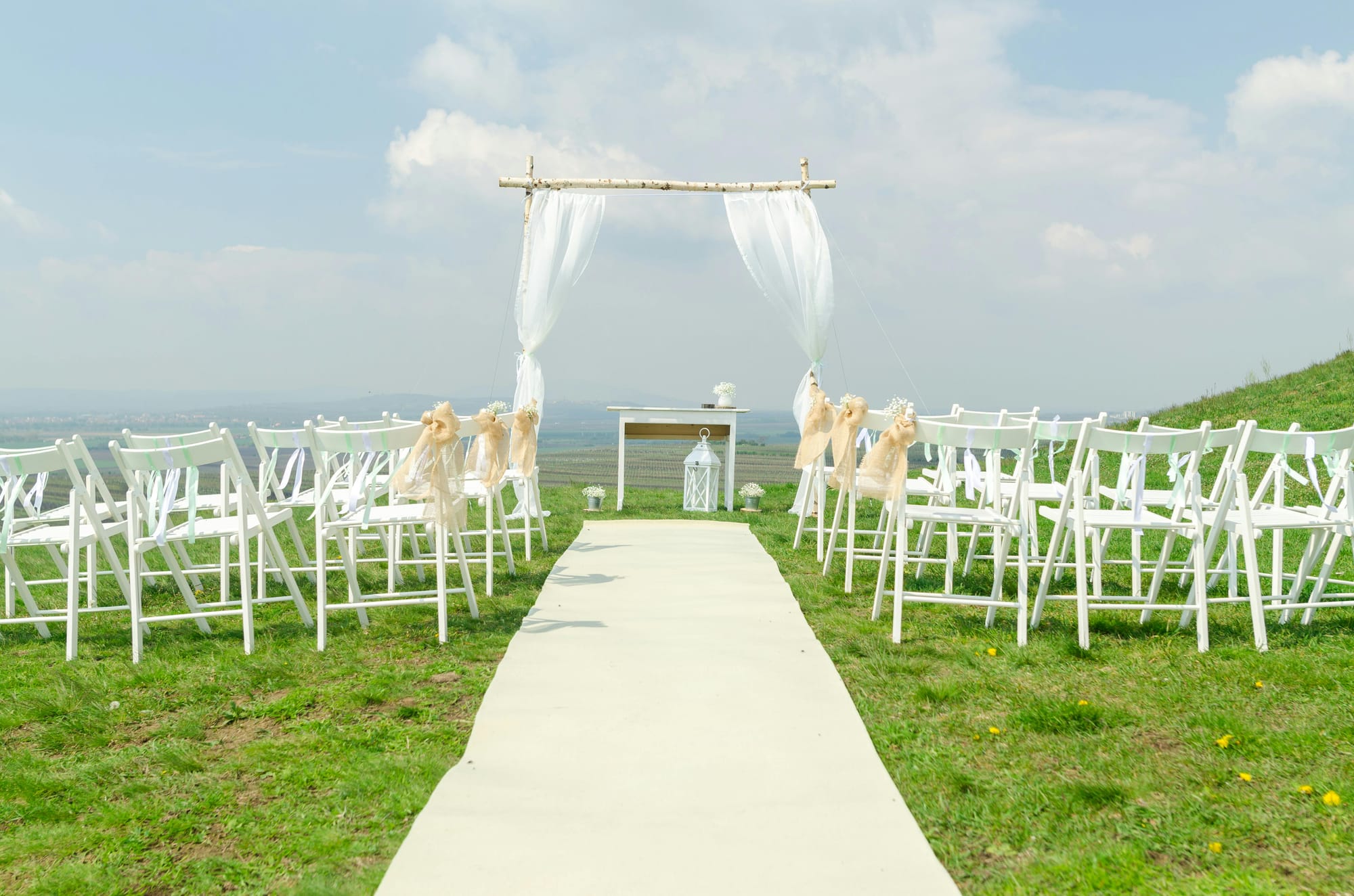
Les points-clés en français au bas de l'article
Who wants to be a guest at my wedding? You don’t need to be a friend – or even know me. All you have to do is book a seat via Invitin, a French “startup that transforms weddings into accessible and funded experiences.”
Turn your big day into a bookable event
Invitin allows couples to sell seats at their event. In doing so, they can partially finance their celebration while offering strangers the chance to be part of an exclusive, immersive occasion. Of course, the fact guests don't know the couple is an important detail – think of it as watching a brand-new reality show on TV, only this time, you’re actually in it.
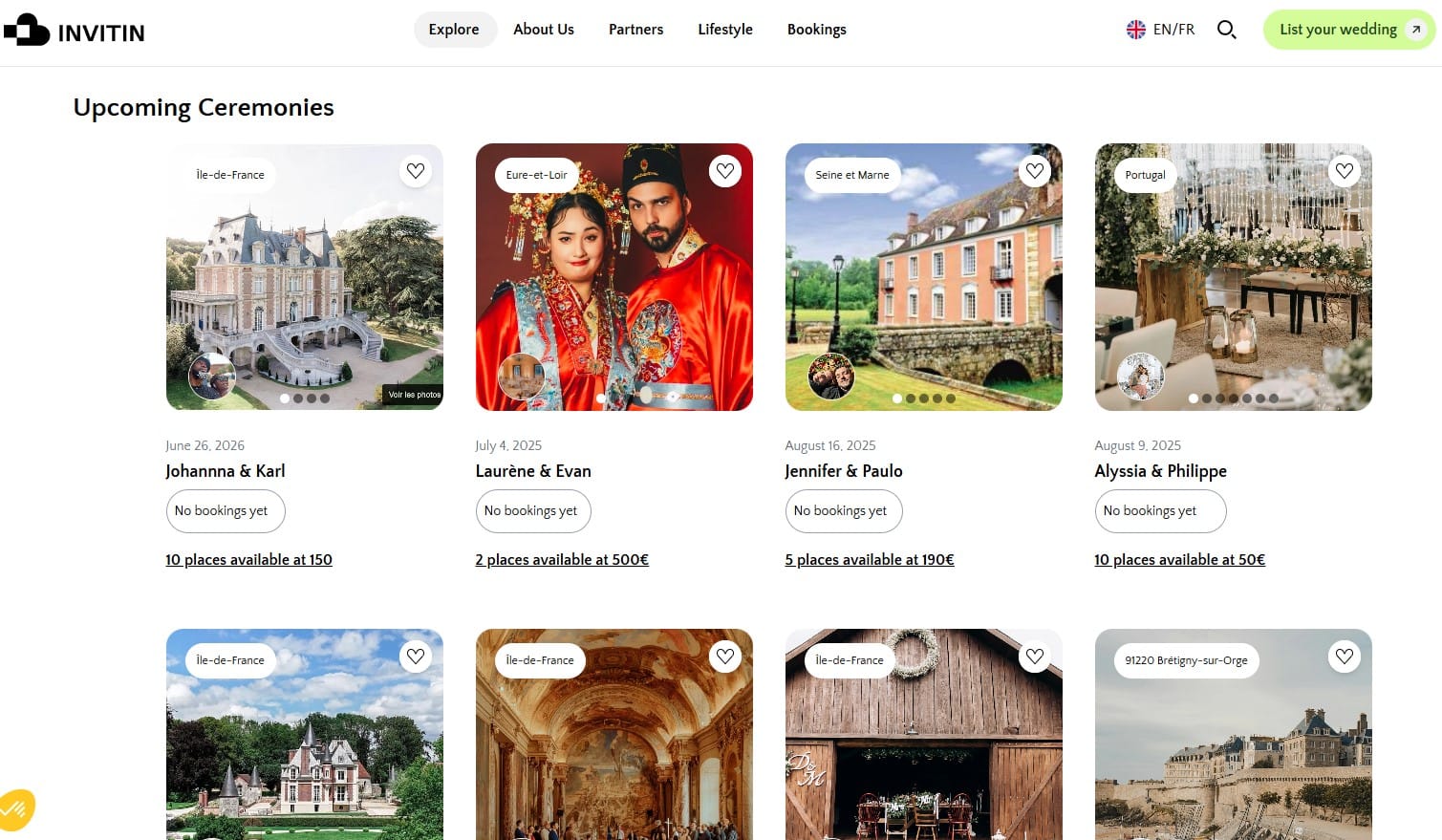
How It Works
Couples list their wedding on the platform, sharing a snapshot of their story, the style of the event, mood, location, dress code, and the number and price of available seats. Potential guests browse listings, discover love stories and wedding vibes they’d like to experience, and book their seats.
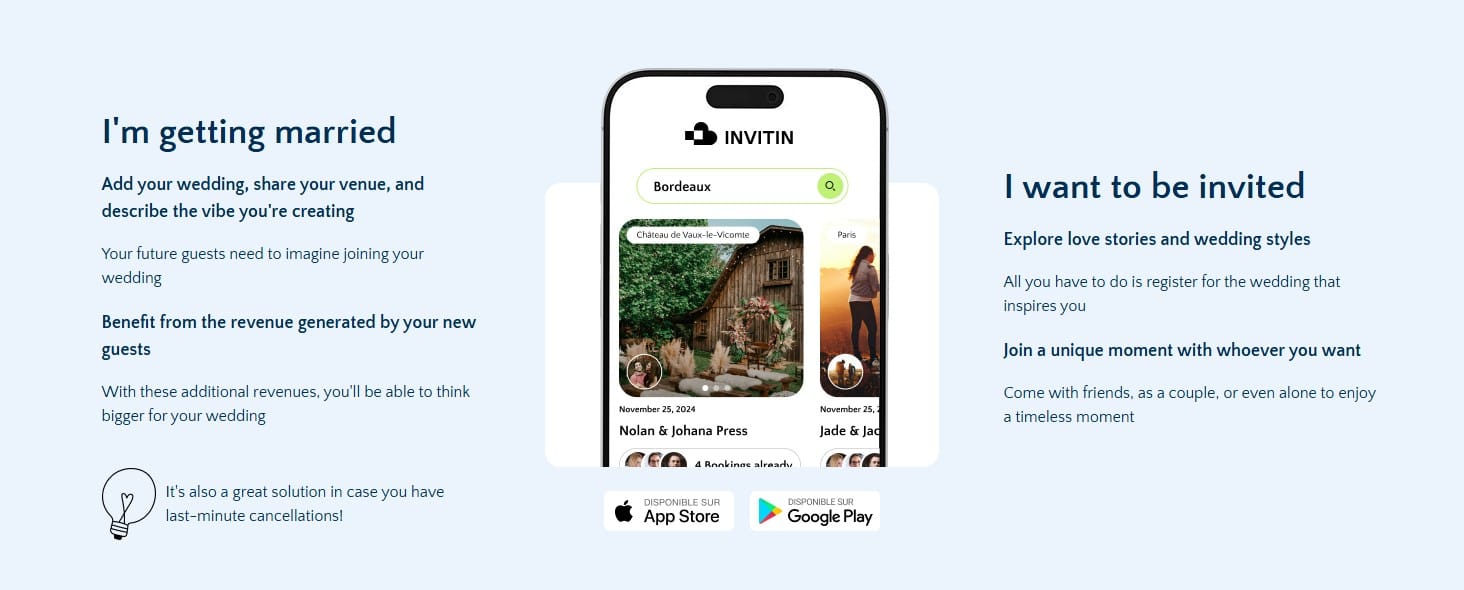
It’s unconventional, and not without its risks – after all, you’re inviting strangers to your big day. But the concept taps into desires that are reshaping hospitality and live experiences:
- Spontaneity and surprise – Neither party knows exactly what to expect. Even for the couple, there’s an unpredictable spark.
- One-of-a-kind IRL moments – A physically experienced, emotionally charged celebration.
- Private access – Step into the most intimate chapters of someone else’s story.
- Financial relief – Offset wedding costs in an innovative way.
Platforms like Invitin are redefining what can be monetized. Intimate life moments are now potential revenue streams. But it’s not just weddings.
Monetize Your Space, Too
Hormur, another French app, connects people willing to open their homes with artists looking for venues to perform. The idea: bring art into unexpected places and spark meaningful interactions.
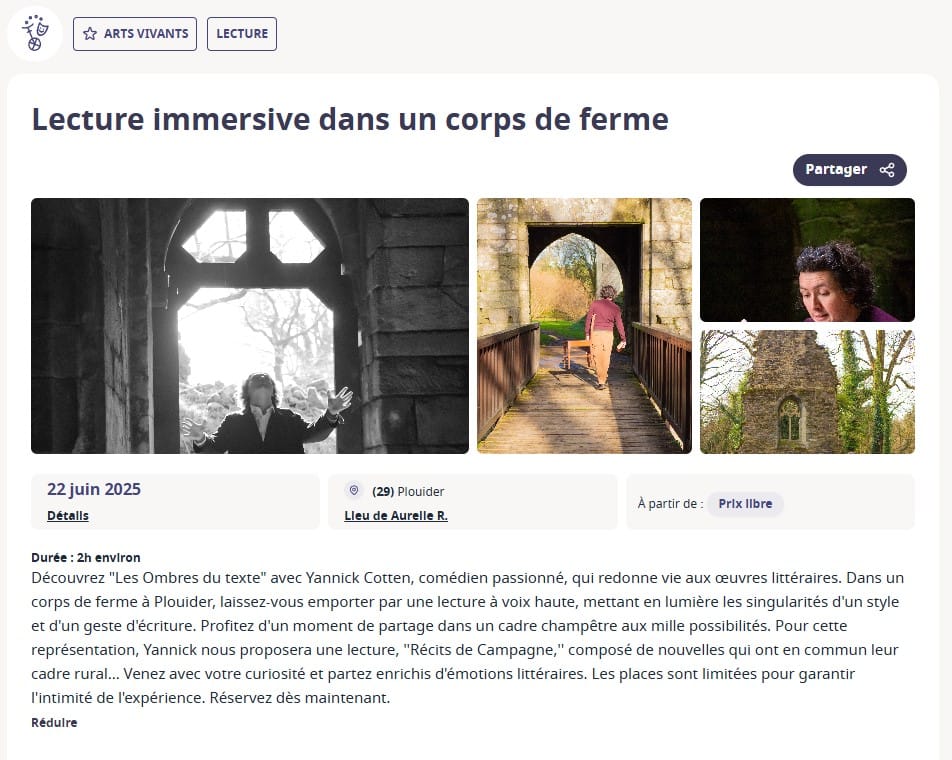
How It Works
Hosts list their space (location, photos, capacity), while artists detail their concept, availability, and technical needs. When there's a match, a pop-up performance is born. Guests can reserve seats – often on a pay what you want basis with contributions aimed at helping artists cover their costs. Proceeds are shared between artist and host.
These platforms signal a broader shift.
What This Tells Us
The experience economy is expanding and becoming more personal, flexible, and decentralized.
Airbnb paved the way with Airbnb Originals, touted as “extraordinary experiences hosted by the world’s most interesting people.” Their relaunch emphasized meets-and-greets with mega stars like Megan Thee Stallion or Sabrina Carpenter, which only a few lucky fans were able to secure. But you can also find more niche offerings like an electro night with Pedro Winter or a Red Room tour with Twin Peaks Deputy Sheriff Jesse Holcomb.
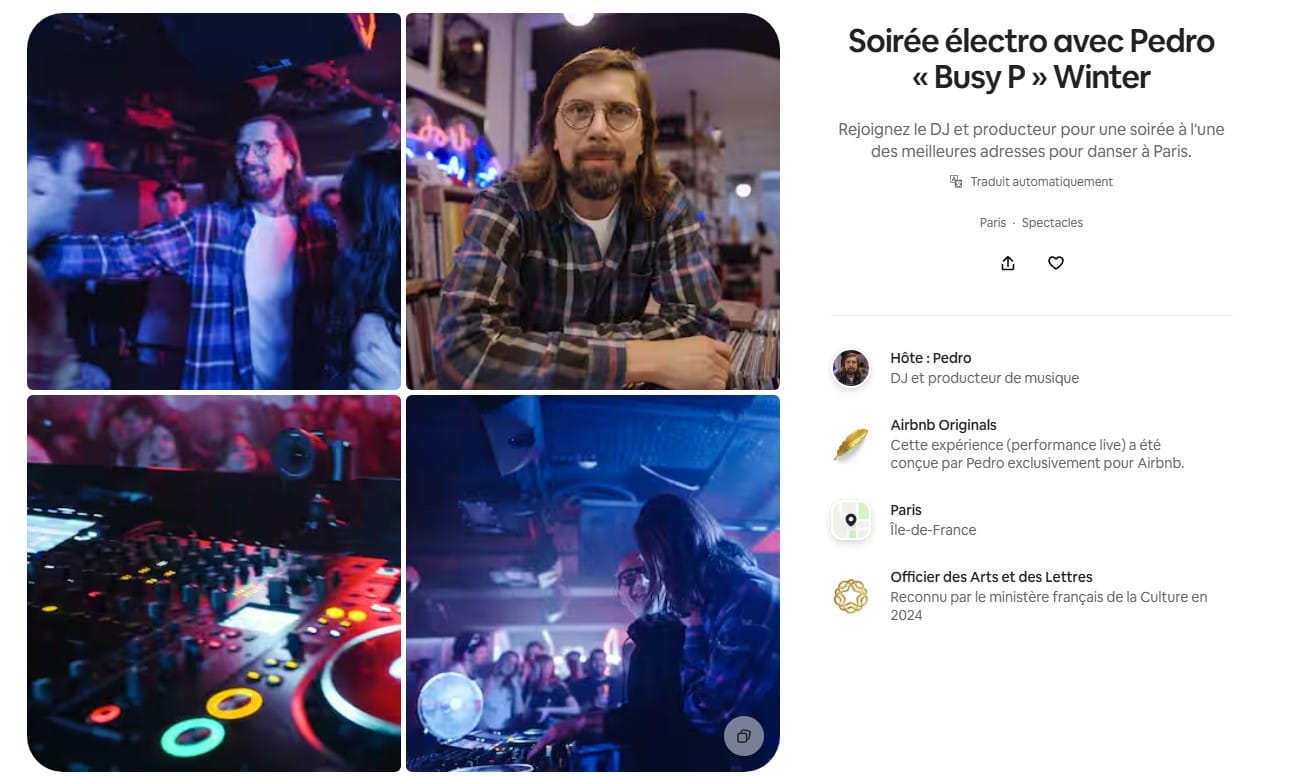
What was once the preserve of institutions and professionals is now wide open. With the right tools, anyone – famous or not – can monetize their space, talent, or family event, turning everyday life into art.
What to Watch: Brands that act as facilitators, connectors, and enablers – those nimble enough to adapt to this new landscape of personal, participatory, and profitable experiences.
En français :
- La startup française Invitin propose aux couples de transformer leur mariage en événement et de vendre des places leur permettant de financer en partie celui-ci
- La proposition (qui n'est certes pas sans risques) répond simultanément à plusieurs attentes, notamment :
- l'envie de renouer avec une forme de spontanéité et de surprise
- la quête d'expériences fortes vécues physiquement (IRL et non en ligne)
Tout en s'inscrivant dans des évolutions à l'oeuvre depuis l'avènement des réseaux sociaux, en particulier :
- l'accès à la vie privée des gens
- une logique de monétisation de cette vie privée (règne de l'influence) - Autre startup à mentionner : Hormur, qui met en relation artistes et particuliers désirant mettre leur logement à disposition pour organiser des événements qui pourraient parfois difficilement exister autrement
- Des innovations qui pointent vers une économie de l'expérience et du divertissement en plein bouleversement, plus flexible et plus décentralisée.
- Grâce aux plateformes, n'importe qui peut "faire de sa vie une oeuvre d'art" et la commercialiser – qu'il s'agisse de son lieu de vie, de son art ou de ses moments les plus intimes – pour le meilleur et peut-être parfois pour le pire, pour rester dans le thème nuptial.